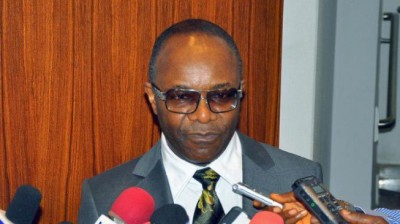
While answering questions from State House Correspondents after leading officials of Nigerian Union of Petroleum and Natural Gas (NUPENG) workers and Petroleum and Natural Gas Senior Staff Association of Nigeria (PENGASSAN) to a meeting with President Muhammadu Buhari, the Minister of State for Petroleum, Dr. Ibe Kachikwu, disclosed that the lingering fuel scarcity would last till the end of May 2016. Although NNPC image makers tried to do some damage control, the prospect of fuel queues for another two months is discomforting and will affect the economy adversely.
The most disturbing thing about a disease called fuel scarcity is that its causes cannot be ascertained. And, indeed, the scarcity of premium motor spirit (PMS), popularly called petrol, is one disease that is presently biting hard on Nigerians in many parts of the nation, yet no one can categorically say why the queues have returned to the filling stations. Although, the Minister empathised with Nigerians and urged them to continue to be a little more patient; and to understand that correcting a system that has gone through long years of neglect and abuse will require patience and sacrifice, the plea fell short of answering why Nigerians are, again, subjected to a supposedly long-gone pain and distress.
Earlier on, the federal government’s position was that the long queues were as a result of panic buying. That the scarcity still persists, disproves such an excuse. The Ministry of Petroleum, the Nigerian National Petroleum Corporation (NNPC) and the Department of Petroleum Resources (DPR) have a unique problem: communication. The flaw in communication with the public has put these departments of government in dire straits. It has also fuelled speculations. One of such making the rounds is that the scarcity of PMS is premeditated to divert the public’s attention from the over N3.374 trillion misappropriated by NNPC.
Being a major energy source to households, kerosene has become gold. Sometimes it sells for as much as N200 per litre. Yet, we are meant to believe that the product is subsidised to the tune of N50 per litre. We are shamelessly an import-dependent economy, where no one seems to be thinking of doing something about the implications of petroleum products importation in an oil-producing country. Thus, we have become a vulnerable prey and meal ticket to foreigners and importers alike. The Petroleum Industry Bill (PIB), which should have served as a proper regulatory framework for the sector, has not only become a forgotten document, but has also been clad in financial controversies. Due to the non-passage of PIB, foreign companies have continued to exercise 100 per cent control over the crude oil export business, a development that distracts from the country’s claim that it is a sovereign nation.
Petroleum marketers have blamed the current scarcity on the delay in the release of the first quarter import allocations. As the blame game continues, Nigerians continue to suffer severe hardship in the midst of plenty. Since it is a given that we officially import what we have and export what we don’t have, government should at least do some remediation to end the suffering of the masses who spend day on end at filling stations. Government should avoid fire brigade approaches to importation of petroleum products. Nothing should stop our refineries from working to mitigate dependency on imported products.
END

Be the first to comment